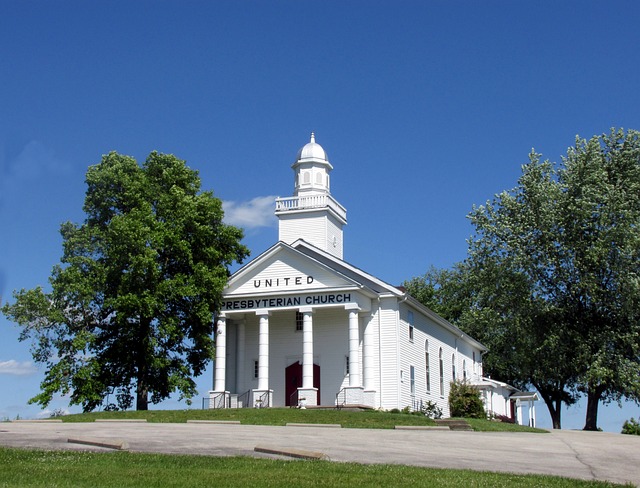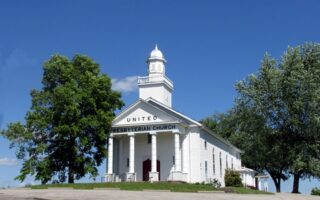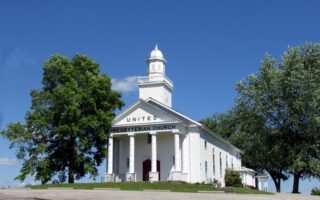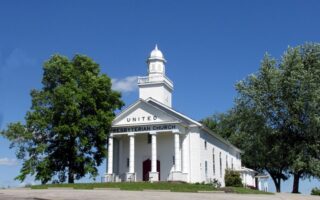Yes, Presbyterians do have female pastors.
Table of Contents
The Role of Women in Presbyterian Churches
Do Presbyterians have female pastors? This is a question that has been asked by many people, and the answer is not as straightforward as you might think. The role of women in Presbyterian churches has evolved over time, and there are varying opinions on the matter.
In the early days of the Presbyterian Church, women were not allowed to serve as pastors. The church held a traditional view that only men were called to be leaders in the church. Women were encouraged to serve in other roles, such as teaching Sunday school or leading women’s groups, but they were not allowed to hold positions of authority.
However, as society began to change and women’s rights became a prominent issue, the Presbyterian Church started to reevaluate its stance on the role of women in the church. Many congregations began to allow women to serve as elders, which is a position of leadership within the church. This was a significant step forward for women in the Presbyterian Church, as it allowed them to have a voice in decision-making and to serve as spiritual leaders.
But what about the role of pastors? Can women serve as pastors in Presbyterian churches? The answer to this question varies depending on the specific congregation and the denomination within the Presbyterian Church. Some Presbyterian denominations, such as the Presbyterian Church (USA), have embraced the idea of female pastors and have ordained many women into this role. These denominations believe that God calls both men and women to serve as pastors and that gender should not be a barrier to ministry.
However, there are still some Presbyterian denominations that do not allow women to serve as pastors. These denominations hold a more traditional view of gender roles and believe that only men are called to be pastors. They argue that this is based on biblical teachings and that it is not a matter of discrimination against women, but rather a matter of following God’s design for the church.
It is important to note that even within denominations that allow female pastors, there may still be individual congregations that choose not to call a woman as their pastor. This can be due to a variety of reasons, including personal beliefs or preferences within the congregation.
Overall, the role of women in Presbyterian churches has come a long way. While there are still some denominations and congregations that do not allow women to serve as pastors, many others have embraced the idea of female leadership in the church. The Presbyterian Church continues to grapple with this issue, and it is likely that the role of women in the church will continue to evolve in the future.
In conclusion, the question of whether Presbyterians have female pastors is not a simple one. The role of women in Presbyterian churches has evolved over time, and there are varying opinions on the matter. While some denominations and congregations embrace the idea of female pastors, others hold a more traditional view. Ultimately, the decision of whether to allow women to serve as pastors is up to each individual congregation and denomination within the Presbyterian Church.
Historical Perspectives on Female Pastors in Presbyterianism

Do Presbyterians have female pastors? This is a question that has been asked by many people over the years. To answer this question, we need to take a look at the historical perspectives on female pastors in Presbyterianism.
In the early days of Presbyterianism, women were not allowed to serve as pastors. The church was predominantly male-dominated, and the idea of women taking on leadership roles was not widely accepted. Women were often limited to serving in supportive roles, such as teaching Sunday school or leading women’s groups.
However, as time went on, there was a growing recognition of the gifts and talents that women brought to the church. Some Presbyterian denominations began to open up opportunities for women to serve as pastors. This was a significant shift in thinking and marked a turning point in the history of female pastors in Presbyterianism.
One of the key factors that contributed to this change was the increasing emphasis on equality and inclusivity within the church. Many Presbyterians began to question the traditional views on gender roles and started advocating for women to have equal opportunities in all areas of ministry. This led to a gradual acceptance of female pastors within certain Presbyterian denominations.
It is important to note that not all Presbyterian denominations have embraced female pastors. Some still hold on to the traditional view that only men should serve in leadership roles. However, there has been a growing trend towards inclusivity and gender equality in recent years.
The ordination of women as pastors in Presbyterianism has not been without controversy. There are still those who hold on to the belief that women should not be in positions of authority within the church. However, many others see the value and importance of having female pastors and recognize the unique perspectives and gifts that they bring to the table.
In recent years, there has been a significant increase in the number of female pastors in Presbyterian churches. This is a positive development that reflects the changing attitudes and beliefs within the denomination. It also highlights the progress that has been made in terms of gender equality and inclusivity.
While there is still work to be done, the fact that there are now female pastors in Presbyterian churches is a step in the right direction. It is a testament to the ongoing efforts to create a more inclusive and diverse church community.
In conclusion, the question of whether Presbyterians have female pastors is not a simple one. It depends on the specific denomination and its beliefs and practices. However, there has been a growing acceptance of female pastors within certain Presbyterian denominations, reflecting a shift towards inclusivity and gender equality. The presence of female pastors in Presbyterian churches is a positive development that highlights the progress that has been made in recent years.
Challenges and Progress in the Ordination of Women in Presbyterian Denominations
Do Presbyterians have female pastors? This is a question that has been asked by many people over the years. The issue of women in ministry has been a topic of debate and discussion within Presbyterian denominations, with some embracing the idea of female pastors and others holding more traditional views. In this article, we will explore the challenges and progress that have been made in the ordination of women in Presbyterian denominations.
Historically, Presbyterian denominations have been known for their conservative stance on women in ministry. Many believed that the Bible supported a male-only leadership structure, citing passages such as 1 Timothy 2:12 which states, “I do not permit a woman to teach or to assume authority over a man; she must be quiet.” This interpretation of scripture led to the exclusion of women from pastoral roles and limited their involvement in church leadership.
However, in recent decades, there has been a shift in attitudes towards women in ministry within Presbyterian denominations. Many have come to recognize that the Bible can be interpreted in different ways and that there is room for women to serve as pastors and leaders in the church. This shift has been driven by a growing understanding of gender equality and a desire to be more inclusive and representative of the diverse body of Christ.
Despite this progress, there are still challenges that women face in pursuing ordination within Presbyterian denominations. One of the main challenges is the resistance from those who hold more traditional views. Some argue that the Bible’s teachings on gender roles are clear and should not be compromised. This resistance can make it difficult for women to be accepted and supported in their calling to ministry.
Another challenge is the lack of representation and mentorship for women in ministry. Many Presbyterian denominations have a limited number of female pastors, which can make it difficult for aspiring women to find role models and mentors who can guide them in their journey. This lack of representation can also perpetuate the idea that women are not suited for pastoral roles, further hindering progress in the ordination of women.
Despite these challenges, there have been significant strides made in the ordination of women within Presbyterian denominations. Many denominations have revised their policies and practices to be more inclusive and supportive of women in ministry. They have recognized the gifts and talents that women bring to the table and have embraced their leadership.
In addition, there has been a growing movement within Presbyterian denominations to actively promote and encourage the ordination of women. This includes providing resources and support for women who are discerning a call to ministry, as well as advocating for gender equality within the church. These efforts have helped to create a more welcoming and inclusive environment for women in ministry.
In conclusion, the question of whether Presbyterians have female pastors is not a simple one. While there are still challenges and resistance to overcome, there has been significant progress in the ordination of women within Presbyterian denominations. The shift in attitudes towards women in ministry and the efforts to promote gender equality have paved the way for more women to serve as pastors and leaders in the church. As we continue to strive for a more inclusive and representative church, it is important to celebrate the progress that has been made and to continue advocating for the full inclusion of women in all areas of ministry.
Theological Debates Surrounding Female Pastors in Presbyterianism
Do Presbyterians have female pastors? This is a question that has sparked many theological debates within the Presbyterian Church. While some denominations within Christianity have embraced the idea of female pastors, others have held onto more traditional views that restrict leadership roles to men. Presbyterianism falls somewhere in between, with varying opinions and practices across different branches of the denomination.
One of the main reasons for the ongoing debate is the interpretation of biblical texts that address the role of women in church leadership. Those who oppose female pastors often point to passages such as 1 Timothy 2:12, which states, “I do not permit a woman to teach or to assume authority over a man; she must be quiet.” They argue that these verses clearly establish a hierarchy where men are meant to be the leaders and women are to be submissive.
However, proponents of female pastors argue that these verses should be understood within their historical and cultural context. They believe that the Apostle Paul’s instructions were specific to the particular circumstances of the early church and should not be applied universally. They also point to other passages in the Bible that highlight the leadership roles of women, such as Phoebe, who is referred to as a deacon in Romans 16:1.
Within Presbyterianism, there are different branches that have taken different stances on the issue. The Presbyterian Church (USA), for example, has been ordaining women as pastors since the 1950s. They believe that God calls both men and women to serve in leadership roles and that gender should not be a barrier to ministry. They have actively worked towards gender equality within their denomination and have seen an increase in the number of female pastors over the years.
On the other hand, more conservative branches of Presbyterianism, such as the Presbyterian Church in America (PCA), hold a complementarian view. They believe that men and women have different but complementary roles in the church and that only men should serve as pastors. They argue that this view is rooted in a faithful interpretation of scripture and the preservation of traditional Christian teachings.
Despite these differences, there have been efforts within Presbyterianism to find common ground and foster dialogue on the issue. The Covenant Network of Presbyterians, for example, is a group that seeks to promote inclusivity and advocate for the full participation of LGBTQ+ individuals and women in the church. They believe that diversity in leadership enriches the church and helps to better reflect the kingdom of God.
In conclusion, the question of whether Presbyterians have female pastors is a complex one that has sparked theological debates within the denomination. While some branches of Presbyterianism have embraced the idea of female pastors, others hold onto more traditional views that restrict leadership roles to men. The interpretation of biblical texts and the understanding of gender roles within the church play a significant role in shaping these differing perspectives. Despite these differences, there are efforts within Presbyterianism to foster dialogue and find common ground on the issue, recognizing the importance of inclusivity and diversity in church leadership.
Conclusion
Yes, Presbyterians do have female pastors.


